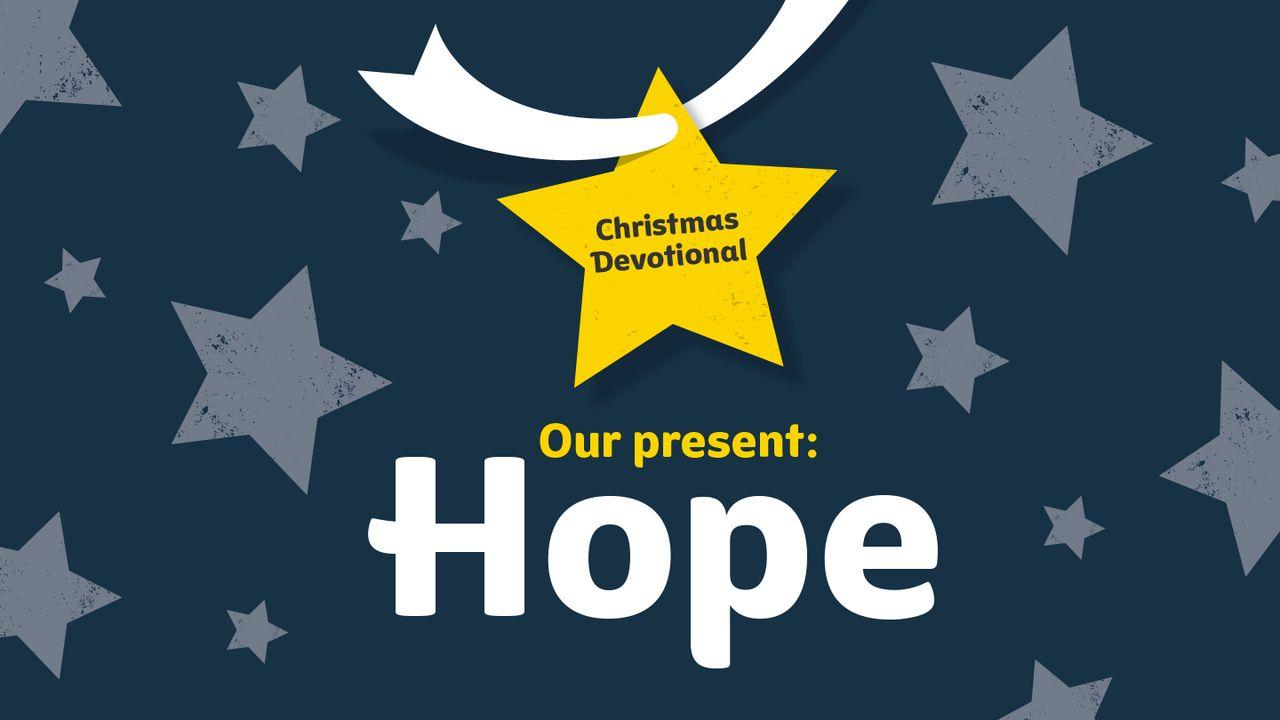Advent 2020Sample

Hope in the promises
It was the beginning of the crisis period on steroids. A dreadful pandemic, with no known cure, was sweeping the earth: the coronavirus. National borders were being closed daily and I was racing to return home from a promising trip to Africa, which had to be cut short. I switched on my phone at baggage collection and was met with notifications of cancellations of speaking engagements and potential business opportunities from around the globe. Now how was I going to meet all my financial obligations – both for my personal life and for the varying ministry commitments that also meant life and death for others who depended on us? My sources of income were drying up fast and plans to serve Kingdom agenda looked like they were going to be stillborn.
It’s hard when you think efforts are going no place and decisions have to be made based on uncertainties. My faith was hemorrhaging, praying was hard and anxiety began setting in like gangrene.
Crisis
A crisis can be described as an event over which one has no control. It breeds despair and helplessness, and is a nurturing ground for giving up, despondency and discouragement. When it continues, it causes one to exit the realm of faith and enter into the abode of doubt.
But, every crisis demands a response that will shift the situation or maintain the status quo. Crisis is never a passive place, but is always a turning point, where responses can result in the circumstances ending for better or for worse. One of these critical and essential responses must be hope.
The Bible tells us how the Lord assured Hosea that he would make even the Valley of Trouble (Achor) into a door of hope (Hosea 2:15).
Our anchor holds
Hope is an anchor for the soul. It is described as a favorable and confident expectation of God. It isn’t just wishful thinking, mere optimism, or positive thinking. It is an expectation, combined with anticipation. Jesus gives us peace and joy in the midst of despair.
Just as I was sinking in despair, I heard a voice clearly say, ‘I will feed you in famine. Just because your brook has dried up, doesn’t mean your source has dried up, too.’ The Lord was giving me hope. His word was providing me with much-needed strength and uplifting my flagging confidence and faith. It became a reassuring stability against the shaking waves of my mind, will and emotions.
Abraham too had to hope against hope and seemed to wrestle with disappearing hope to keep it alive in order to experience what had been promised.
Weeping may endure for a while, but joy comes in the morning. Watch for the joy. Hope for the joy. Embrace the joy!
Just as an anchor needs the deepest of places in the sea to rest, so our hope needs grounds to establish it. It needs a base to depend on. It is said that, in the past, sailors would leave their ship and sail away in a smaller craft in order to carry the anchor forward to a deep place where it could be firmly lodged. Will your anchor hold in the storms of life? Or is it lodged in shallow waters, buffeted by uncertainty?
A scholarly commentator on the scriptures explains that so, too, the Lord Jesus, by his entrance into the heavenly sanctuary – where he functions as a High Priest forever – has given to Christian hope, an anchorage from which it cannot be shaken loose (Hebrews 6:19). Since, therefore, the believer’s hope was secure, they could cling to it tenaciously, ‘right to the very end’. This hope is steadfast, speaking of something which does not break down under the weight of pressure.
By Rev Celia Apeagyei-Collins, founder of the Rehoboth Foundation and Tearfund ambassador.
About this Plan

Join us on this Advent journey, where you will encounter scriptures, poems and stories of hope. A hope that was first signaled by a star that called wise men to a stable around 2,000 years ago. A hope heralded by angels to shepherds in a field. A hope that sings to our hearts and builds our courage.
More
Related plans

Spiritual Virtues for the Modern Man

God as Your Planmaker - Jeremiah 29:11

I Know A Name

Bible in 260 Days

The Gospel of Luke - Devotionals

Resurrection Hope: Finding Victory in Life’s Hardest Moments With Aaron Williams

Embracing Your Identity as a Daughter of the King Through Infertility

One Another: Be Kind

Job Book Study - TheStory
